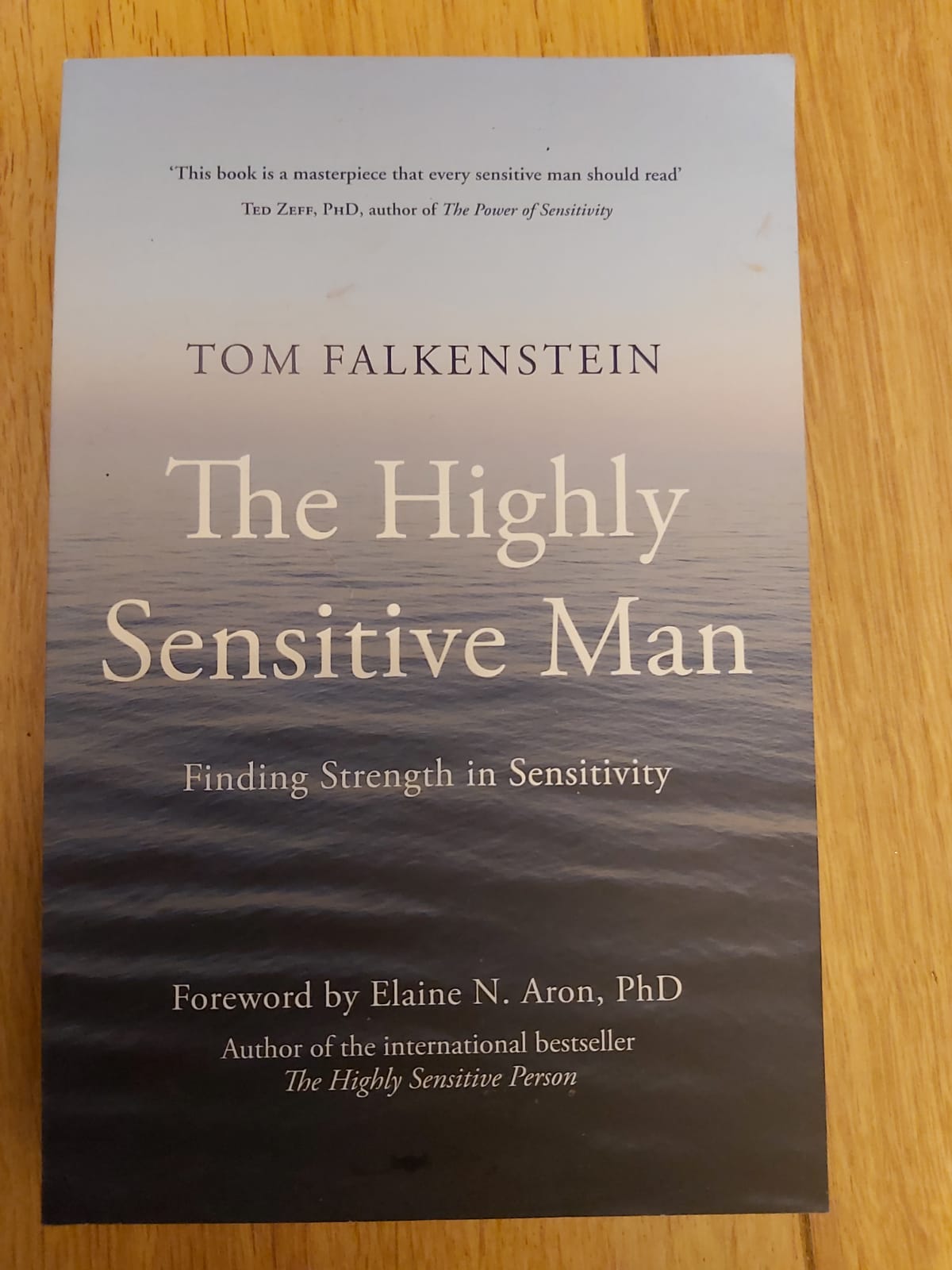Men can be HSPs too
Society doesn't support highly sensitive men to own their gifts. A new online community aims to change that.
Welcome to my weekly newsletter building a supportive community for Highly Sensitive People (HSPs).
When I was working as a clinical psychologist in the City, I saw many male clients in senior corporate jobs. Almost invariably, they’d only sought help when they’d reached crisis point: Their dad had died; their marriage was falling apart; or they’d been made redundant, to name some of the more common triggers.
Although our work together was an essential start, I often left sessions with a nagging feeling that there was more I’d like to be offering them. As I often do after client sessions, I would research additional resources: Books, apps, courses. One thing I wanted to be able to point them to was a men’s group — even though I wasn’t convinced that many of them would be willing to take part. And I couldn’t find anything that seemed right.
I’m glad to report that there’s a lot more out there these days, including a new group my husband Matthew is launching next month, called Embracing Change — a four-week series of transformative online gatherings for men. You can read more about why Matthew co-created the group with his friend Daniel Simpson, a teacher of yoga philosophy, on Matthew’s Resonant World newsletter focused on supporting the growing global community of practitioners working to heal collective trauma.
Although the group is not explicitly aimed at HSPs, it will be an ideal setting for highly sensitive men who are keen to enlist the support of a like-minded community to confront their challenges, and step more fully into their gifts.
Here’s a short video of Matthew and Daniel explaining what they’re offering: :
Fifty-fifty split
Looking back to my years in the City, I can see that many of the men I was working with were HSPs — even though I hadn’t yet come across Dr Elaine Aron’s ground-breaking work on sensitivity at that stage in my career.
I can also see in retrospect that almost all of those high-flying male executives had learned to shut their sensitivity down at a young age to protect themselves. And given the stigma still lingering around the term “sensitive,” I suspect most of them would have recoiled at being described as an HSP — even if they had read Dr Aron’s work.
Nevertheless, HSP traits show up in men in the same way as they do in women: Finely tuned nervous systems; deep processing of information and emotion; high responsiveness to sensory inputs such as sound or smell; tendency towards overwhelm; absorbing others moods and emotions; conscientiousness; detail oriented; capacity to connect deeply, and remarkable powers of intuition. And of course, all HSPs need their alone time. This profile is something we’re born with — a result of the way our nervous systems are wired.
What’s more, research suggests that the subset of the population who could be considered HSPs divides 50-50 between women and men.
A lot of women are surprised when they hear this statistic — having assumed that high sensitivity is more likely to be a female trait. I think this says a lot about our cultural conditioning — and reflects the difficulties many highly sensitive men experience in understanding and owning their traits, with all their joys and challenges.
Putting on a mask
The message that the culture gives highly sensitive boys from day one is: You’re wrong to be so attuned to emotions; Your intense feelings are not acceptable; You must change; You must toughen up to survive in this world; You must suppress your sensitivity to belong, to fit in, to be accepted and loved. Instead of being taught to regulate their emotions, highly sensitive boys have been rejected, shamed, labelled and criticized — their masculinity called into question.
The result is that many highly sensitive men have learned to stuff down their emotions — often to the point that they’ve become disconnected from their core self. That was an intelligent response during childhood — when it was too much of a risk to show their authentic selves. Tears and vulnerability were deemed unacceptable. They had to put on a mask and become someone different to survive. But in adulthood, highly sensitive men can learn to crack through that past conditioning — and remember who they truly are.
I’ve worked with enough highly sensitive men, however, to know that reclaiming sensitivity as an adult in this way is not easy.
If a highly sensitive child is fortunate enough to grow up in a nurturing environment, where their gifts are recognised, then research suggests that they’re likely to go on to achieve better outcomes than less sensitive peers. But the converse holds true: sensitive children are disproportionately impacted by negative experiences — and these effects can linger into adulthood.
Fortunately, there’s growing awareness of the contribution that highly sensitive men can make — in large part thanks to the work of therapists such as Tom Falkenstein, and the late Ted Zeff, whose fantastic books The Highly Sensitive Man and The Strong Sensitive Boy, I absolutely love. Tracy Cooper has also written a book called Empowering The Sensitive Male Soul, and is producing a forthcoming documentary called Sensitive Men Rising, which is dedicated to Ted Zeff’s memory.
I’m planning to return to the unique challenges facing highly sensitive men in future editions of The HSP Revolution. For now, I’m glad that books and films are starting to spark new conversations around men and sensitivity. And I hope some readers of The HSP Revolution may feel called to explore this topic with the support of Matthew’s new men’s group.
Thank you, as always, for reading!
See you next week,





